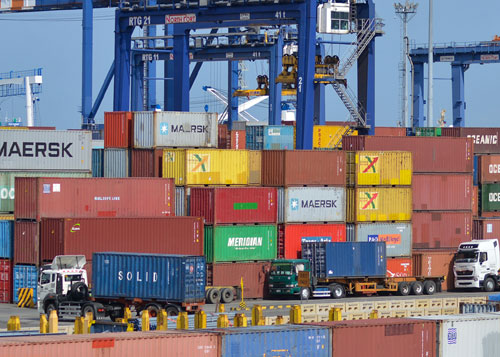The private sector has asked the government to address regulatory issues hampering the implementation of public-private partnership (PPP) projects.
The PPP Center said in a statement representatives and panelists from the private sector aired their sentiments on issues that beset the country’s PPP program during the recent infrastructure forum.
These range from gaps in the legal framework to issues on transparency, predictability, consistency of rules, the equitable distribution of risks to specific bottlenecks like right-of-way, and the need to revisit the approval process at the Investment Coordination Committee.
Rodrigo Franco, Metro Pacific Tollways Corp. (MPTC) president and chief executive officer (CEO), said legislators need to fix the industry regulatory requirements that should accompany the PPP Law improvements.
Despite the challenges that MPTC has faced, Franco believes t PPPs can be successful.
“We think, and we’ve seen, especially as we have six toll road concessions already, that the PPP scheme works in the toll road sector. There are some problems, but we think that this can be managed by all stakeholders working together,” Franco said.
Cosette Canilao, Aboitiz InfraCapital president and CEO, said PPP investors point to bankability and the equitable allocation of risks between the government and the private sector as the primary reasons for undertaking PPP projects.
“The recently approved IRR (Implementing Rules and Regulations) amendments to the BOT (Build-Operate-Transfer) Law is a welcome development. The revisions will hopefully ensure the viability of PPP projects, provide a fair distribution of risks
between the private sector and government, and resolve ambiguous provisions that could cause delays in the implementation of PPP projects. What we are hoping for next is the speedy evaluation and approval of numerous projects in the pipeline,” Canilao said.
Issues with crafting, implementing and managing PPP contracts were also seen as a substantial challenge to the success of the PPP program.
Mia Mary Sebastian, Citadel Pacific Ltd. Group chief business development and external relations officer, noted the value of efficiently managing PPP contracts.
“When you deal with PPP infrastructure projects, it is critical that public interest is protected. But there is a need to balance between regulations and how this partnership is implemented between the public and the private sector. At the approval stage you lay down the contract term and by doing so lower the risk premium of the private sector, providing certainty and stability during contract implementation,” Sebastian said.
Part of the provisions stipulated in a PPP contract is the allocation of risks, Jaime Raphael Feliciano, Megawide Construction Corp. chief business development officer, pointed out.
“Often, all the risk is transferred to the private sector. Government has obligations as well. There has to be a consciousness that both parties have obligations to make the project work,” Feliciano said.
Ma. Cynthia Hernandez, PPP Center of the Philippines executive director,
acknowledged there are provisions in the BOT Law that are ambiguous or are causing issues which cannot be addressed through amendment of the IRR and
entail amendment of the law itself.
According to Hernandez, the passage of the PPP Act becomes critical as a legal remedy to address the issues that continue to hamper the growth and viability of the PPP program.
She added the proposed PPP Act will address ambiguities in the existing law, address bottlenecks and challenges affecting the implementation of the PPP program, and foster a more competitive and enabling environment for PPPs.
“In amending the 2022 IRR, the BOT Law IRR Committee was guided by the following policy objectives. First, it must address stakeholder concerns about the financial viability and bankability of the PPP project. Second, it must also address concerns about potential delays due to extra steps, rigid processes, or ambiguous provisions,” Hernandez said.





